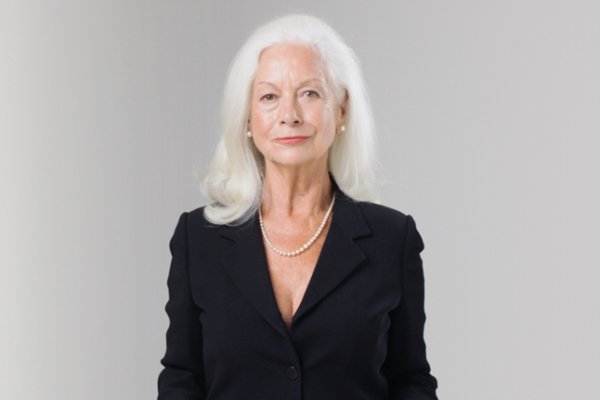The Mighty Heart programme, developed by three-time Nobel Peace Prize nominee Dr Scilla Elworthy, distills decades of learnings from some of the toughest negotiations on the planet.
It builds on the learnings, lessons and experiences from Dr Elworthy and changemakers around the world, and delivers tangible results.
‘We envision a world where technology propels human potential and regenerates our planet’, says Daphne. ‘As a team, we bring together a unique combination of expertise and lived experience from the worlds of technology, business and social impact. We understand that innovation needs to be grounded in values and that we need to act as bridge-builders to the wisdom traditions.’
That festival feel
The co-founders describe Planetir using the analogy of a music or arts festival; ‘Picture yourself attending the festival knowing that all those around you have consciously taken a pledge to protect and uphold the same set of values and work towards a common vision’, Daphne says. ‘You’d feel freedom, joy, interconnectedness and a sense of belonging.’
Imagine now that this festival opens up a world of continuous learning: hundreds of tents showcasing various learning pathways you can explore and sign up for.
You wonder which skills to pick; the path is lined with a range of impact ventures from around the globe, including projects related to clean air, soil regeneration, energy transition, new finance, unlocking potential, community work and more.
In front of the tents, there are wooden boards on which you see notes regarding the skills and team members required.
You wonder who organises all this and discover that it’s the people; this festival is run and owned entirely by the community.
The tents, the shops, the ventures – as well as the individuals – have all taken a pledge to contribute a percentage of the value the festival creates back to a fund which is used to make this colourful convention happen. ‘Planetir is such festival’, Joscha tells us; ‘online and offline.’
A dance of 100k
In addition to facilitating virtual interactions, Planetir organises physical gatherings and programmes to foster a strong sense of community among its participants, and uses art and music to connect people.
‘Our moonshot is to dance with an audience of 100,000 people, activating them as Planetir pioneers in our community and on our platform’, Daphne explains.
Planetir’s Tune in // The Festival Track is a live, immersive performance experience and a call to action to work together in tune with ourselves, each other and the world around us.
It is a multi-disciplinary sensory experience – with storytelling, art and music – that stretches the boundaries of what a documentary artwork can be.
‘The vision is that the boundaries between the artist and the audience are artificial’, Daphne explains. ‘We are all artists, working together and taking care of our house and our planet.’
Planet-positive investment
By fostering a sense of collective awareness, responsibility and ownership, the team at Planetir is hoping to drive individuals and communities to take action and become more actively invested in creating a brighter future for us all.
‘We believe that talents should own a stake in their own human potential and are therefore introducing Planetir as a fully decentralised technology’, Daphne reveals. ‘The platform allows talents to systematically shift their value into areas that can bring about planetary good.’
Planetir puts a percentage of fees into an impact fund earmarked specifically for planet-centred projects on an ecological or societal level; the more users that register and interact on the platform, the greater the funding generated.
All projects have a net-positive effect for the planet and are voted on collectively through a user token system.
‘Planetir’s impact fund has the potential to revolutionise the way funding is generated for green projects’, Daphne tells us. ‘Our decentralised approach and Web 3.0 tech, in combination with the alignment of interests between talents and the platform, creates a more sustainable and equitable ecosystem that prioritises ethical and socially conscious talents and organisations.’
A consortium of partners oversees the management of the foundation that owns Planetir, and Mehemed believes the platform is poised to become a thriving and self-governing ecosystem that will shape the future of work and planet-positive activism and investment.
‘Planetir can do more than ensure it is self-sufficient’, Mehemed shares; ‘it can become a thriving and funding-generating ecosystem that shapes the way talent takes action for the planet.’
Following your heart
Planetir is seeking partnerships with public institutions and policy leaders to jointly tackle the main issues of our time – not by asking for new legislation or regulations, nor for funding, but by building an impactful platform through which people can really contribute and work with each other and business to effect real change.
‘We are not just a team, but a collective of collectives, each bringing unique strengths to the table’, Daphne says. ‘We are passionate about empowering the next generation of learners and creators, and we believe that now, more than ever, is the time for solidarity and for people from all backgrounds to come together.’
Daphne was inspired by the motto ‘To make the unthinkable possible’ in the book The Google Story. In her role as Head of Technology at Google Netherlands, Daphne took on an experiment: ‘What happens if you follow your heart in all you do, including business?’
In this business context, Daphne started acting on her own values of feminine leadership and began fearlessly following her heart; the approach opened doors she never thought possible. ‘It set in motion a chain of adventures, inside and outside Google’, Daphne remembers. ‘Freedom in thinking, doing and feeling has become a personal mission, and I want others to experience that, too. I want to show the power of sailing your own course, driven by personal values.’
 Play Video about This Rock Might Just Save The World
Play Video about This Rock Might Just Save The World Play Video about Play 2 hours of rock
Play Video about Play 2 hours of rock Play Video about Play 2 hours of brook
Play Video about Play 2 hours of brook Play Video about Play 2 hours of sheep
Play Video about Play 2 hours of sheep













































